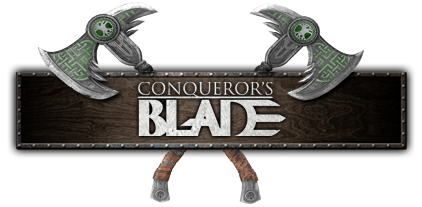There's lots of information about the upcoming ESO online game, but one of the items that grabs my attention is how they are approaching the economy.
The first MMO I ever played was Star Wars Galaxies, and I remember how challenging and exciting it was to find "the guy that could make some good armor" Or hearing the rumor at a cantina about someone selling a Krayt Pearl.
WOW brought about the mass economy and node farming. You'd throw your items on the AH and wake up hoping to see some gold in the mailbox.
Guild Wars 2 introduced unlimited personal nodes and Mega Marketplace that crossed all servers and turned it into some massive storage closet where anything could be bought or sold instantly and gems converted to gold if you ran short.
This particular article summarizes the thoughts quite well and gives us a glimpse of what to expect...shades of the Warhammer guild-only AH, yet so much more:
A few days ago I was speaking with TESO Elite’s Garbrac as he wrote his own article on the economics of The Elder Scrolls Online. We had just learned that public guild stores were only to be available through keep ownership, a limitation we both agreed will prove severely limiting towards the ability of guilds to hawk their wares to the general public. Over the course of our discussion, we agreed that the lack of accessibility to sellers and lack of predictability to buyers will ultimately see the public guild stores become a lesser-used facet of the game’s economy; a more expanded discussion on this subject can be found in his article, which I recommend reading before continuing as the article below is heavily based on the line of reasoning outlined therein.
So if we believe the speculation that public guild-stores won’t be the prevalent form of trade within the game economy – what else could fill that void? A crafter crafting his crafty crafts for trading. That’s… sort of related.
Astute Tamriel Foundry veterans and readers who continue reading for twenty-five more words will know that many months ago there was an old thread debating whether or not an auction house should be included in game. The argument against, essentially, was that in older MMORPGs the economy had been much more based on exploration and social interaction, two things opponents of the auction house model wanted to see make a return. At the time, the popular opinion -which I shared- was that an auction house would be included in some form, with my own thoughts on how to adapt it to solve those problems running the gamut from player stores a la Star Wars Galaxies to a full-blown auction house with burdensome taxes.
Since the announcement of guild stores we’ve seen their possibilities being speculated along a wide range of options, from essentially being micro-auction houses open to all, to being limited to guild-members only, and finally resting on what we currently know to be true; that guild stores will only be open to members, unless that guild owns a keep in Cyrodiil. With this highly limiting implementation, how will the economy adapt? My theory - by doing exactly what opponents of the auction house wanted.
In the early MMORPGs of yore the economies were not as streamlined as what we have now become accustomed to. Some games had no support for the trade economy, with the primary method of trade often involving external forums or going to a popular hub and spamming local chat if you did not know a crafter; that, of course, is the essential caveat. The less the game was able to find a crafter for you, the more you relied on the connections you were able to form with the players around you to acquire whatever goods you wanted. Crafters became renowned for their abilities and dedication to their craft, with the cream of the crop rising to the position of go-to-guy for the vast majority of their server communities. Some games managed to maintain the social economy while streamlining the process; in Star Wars Galaxies crafters could set up shops within their homes manned by NPCs which their patrons could buy from without them having to be directly involved, and crafted items were usually tagged with the name of the crafter who had created them to help consumers remember crafters who were capable of creating specific items. For players seeking to enjoy an MMORPG as a virtual world -arguably the point of an MMO- it couldn’t get any better than this. Khajiit are often merchants. Or thieves. She could be robbing the place.
As the MMORPG market evolved, the focus moved from crafting based itemization to loot based itemization, and through games like Everquest and World of Warcraft, the importance of the crafter and player economy was reduced to virtual meaninglessness. Auction houses were streamlined, and eventually, the crafter-consumer relationship was resigned to obsolescence. Now the pendulum is swinging is back; The Elder Scrolls Online specifically is attempting to make crafted gear useful without ruining its theme-park progression by attaching veteran level requirements to items, and along with that, it may just lead us to the resurgence of the social economy.
After ruling out public-guild stores as the economy’s primary method of distributing goods, we’re left with a view of a far more intimate market. Many players have begun planning and forming trade guilds where vendors and customers will come together to exchange goods. With members restricted to only a few hundred at most, their reach is limited, and the logistics of a guild with larger reach utilizing a revolving membership only composed of current buyers and sellers may be more than organizers will be willing to accommodate. There is the possibility for trade guilds run by especially industrious crafters where the store is so well stocked that much or all of the need for socialization is removed, but I suspect these will be the exception, not the rule – and most likely on the smaller and more exclusive side to boot. I am very interested to see if the development of crafter-client relationships become prevalent, especially when players find themselves needing to commission rarer items. I bet that glove was bought in a trade.
But what about the solo players?
Crafters seeking personal renown in the style of older games may not be interested in joining a trade organization, and some players may wish to go it alone for other reasons. We don’t yet know whether or not soloers will be able to set up their own stores; while Nick Konkle has mentioned a requirement of 50 members to host a guild store, it remains unclear whether that applies to all guild stores or simply those being opened to the public – though I would think that if you could capture a keep and hold it, such restrictions would be unnecessary. Further, we don’t know if the requirement is 50 current members, or merely having achieved that at one point to unlock it, leaving the crafter free to pay people to join temporarily to do so.
If these options are not available to crafters seeking to go it alone, they will most likely have to find themselves working on fostering professional relationships with consumers, frequenting popular hubs, and listing their wares in well curated forum threads if they want to successfully grow their business.
For both types of traders though, one thing is for sure – the benefits to fostering social connections with other players will be much stronger than they have been in other recent MMORPGs; yet it is important to remember that ultimately, The Elder Scrolls Online has been forced to limit players’ access to the market because of their decision to utilize a mega-server. With the massive scale of the population, having the economy split only into thirds by the alliances would quickly result in a highly saturated, nigh untenable market, which would inevitably detract from the overall quality of the game experience. While their decision to segment the market based on social mechanisms like guilds may lead to a more socially involved economy, it is important to point out that this is most likely seen by the developers as an incidental benefit at best. The social economy is something that is by necessity player driven, so if this is something we want, it is up to communities like our own to make it succeed.
http://tamrielfoundry.com/2013/11/eso-and-the-resurgence-of-the-social-economy/























